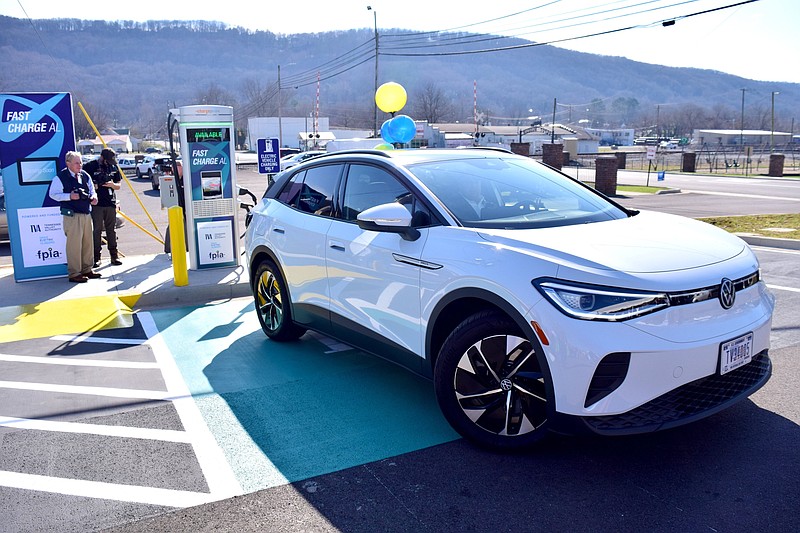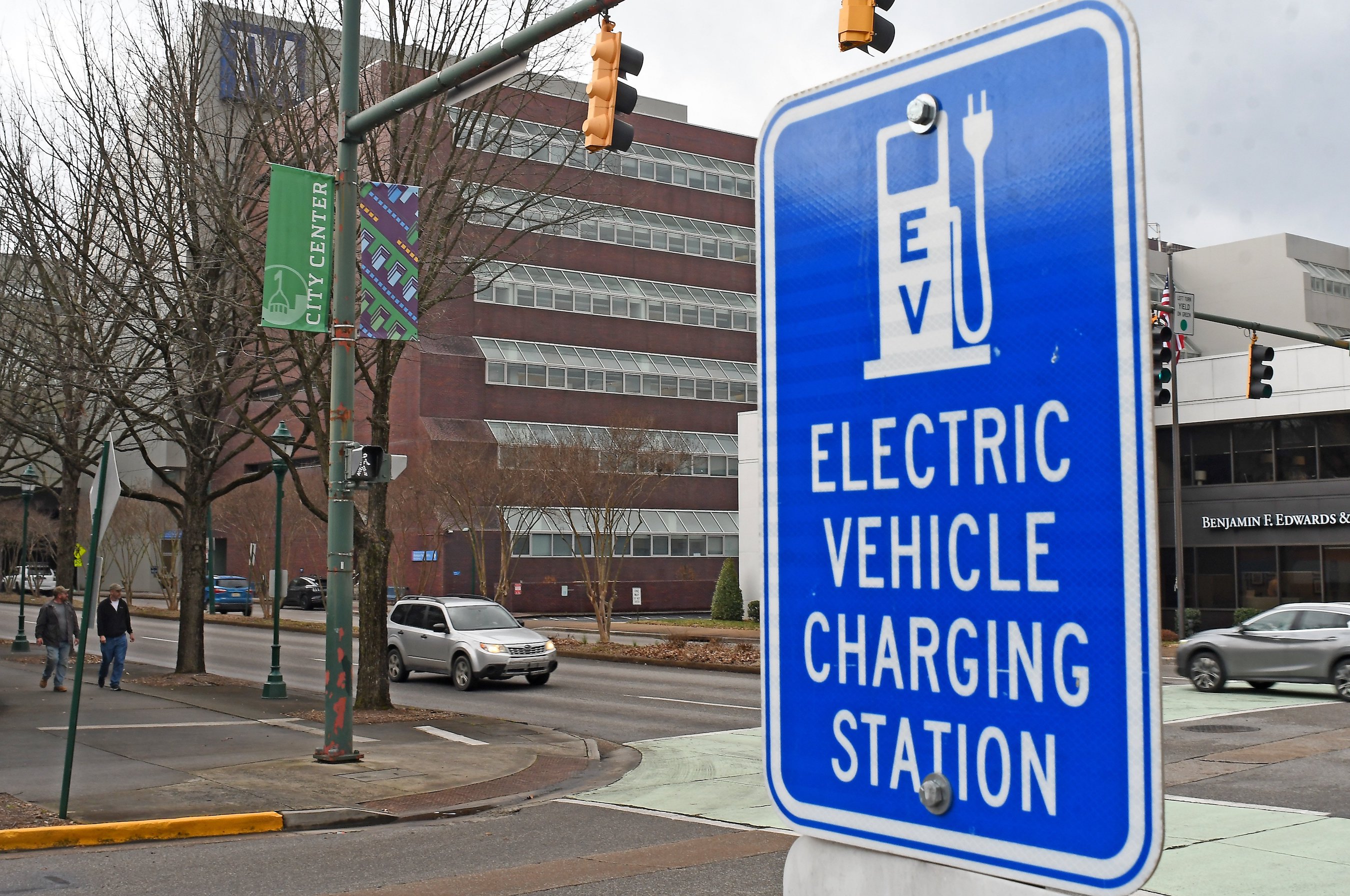When it comes to electric vehicle friendliness, the Chattanooga area has just one charger for every 3,478 residents, or about half the national average, a new study shows.
But for Tesla drivers, the Chattanooga metro is only 7.8% below the average nationally, according to a study from auto search and research company iSeeCars.
Tennessee overall ranks 33rd among the most electric-vehicle friendly states as measured by chargers, the study said. Georgia is 16th nationally, the study shows. The most electric-vehicle friendly states are Vermont, California and Massachusetts, according to the study.
Karl Brauer, iSeeCars' executive analyst, said in a phone call that the Chattanooga area, at 52.5% below the national average, is doing better than the Volunteer State as a whole as electric vehicles and chargers are more common in cities than rural areas. For Tennessee to improve, it's a matter of concerted efforts by the state legislature and government organizations, he said.
Brauer said that "wanting to make this happen is the first ingredient."
He said recently passed federal government measures, including the Inflation Reduction Act, are making from $5 billion to $7 billion in incentives available to build more chargers in states.
Another key factor in the study involves examining Level 3 chargers. Those offer the fastest charging speeds and are what motorists traveling between cities want to use. Fast chargers typically add 100 to 200 miles of range to a vehicle per 30 minutes of charging.
"We need far more Level 3 chargers," Brauer said. Level 2 chargers, which are most common, offer about 20 miles of charging per hour. "That's just not functional," the analyst said.
Tennessee ranks 43rd nationally when it comes to fast chargers, the study showed. Georgia ranked 23, the iSeeCars data shows.
"It's technology we didn't have until a few years ago," Brauer said about fast chargers.
Michelle Krebs, executive analyst for car data and services company Cox Automotive, said by phone that the Inflation Reduction Act passed by Congress late last summer is important for electric vehicles.
She called it "perhaps the most significant legislation to accelerate transportation electrification in U.S. history." The bill offers tax credits to electric vehicle buyers as well as a series of other provisions to bolster battery-powered transportation, including for charging stations.
Krebs said new electric vehicle sales in the U.S. this year are forecast to hit 1 million, up from 800,000 vehicles in 2022, or representing about 8% of all new vehicles sold. Electric vehicle sales are the fastest-growing segment in the auto industry, she said.
Elizabeth Hammitt, EPB's director of environmental and residential energy solutions, said in a phone interview that the power distributor is working with local partners and providing support to meet the market where it is.
She said Chattanooga has 1,400 electric vehicles on the road, or 5.3 electric vehicles per every charger. There are 255,000 vehicles registered in Hamilton County, the EPB official said.
"We're at the beginning of the curve," Hammitt said. "We're well positioned to support the growth of EVs."
Also, she said, there are 13 Level 2 chargers in EPB's parking garage at M.L. King Boulevard and Broad Street.
In addition, Hammitt said, the distributor has a team on staff to advise people interested in installing chargers at their residences.
Last summer, EPB unveiled plans to develop a fast recharging station along one of the interstate highways in Chattanooga.
EPB is among a dozen local utilities that are sharing $5.2 million in grants in the latest round of assistance the state is providing to add 32 fast-charging units at 13 sites across Tennessee to help recharge electric vehicles.
In Tennessee, the state has crafted a plan to use grants and public-private partnerships to install fast-charging electric vehicle stations along interstate highways at locations not more than 50 miles apart, according to the Tennessee Department of Transportation. The faster chargers would be put in areas across the state, though it likely would be a year before some are installed.
Brauer said another problem with the existing charging network involves maintenance and upkeep. He said it's not useful to travel to a charging location and find out that it's not working.
For the study, iSeeCars analyzed data from the U.S. Department of Energy's Alternative Fuels Data Center through 2022 as of Feb. 8, 2023.
Contact Mike Pare at mpare@timesfreepress.com or 423-757-6318.

